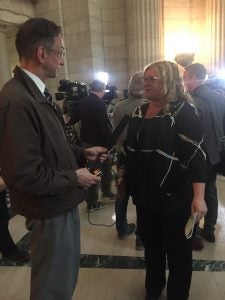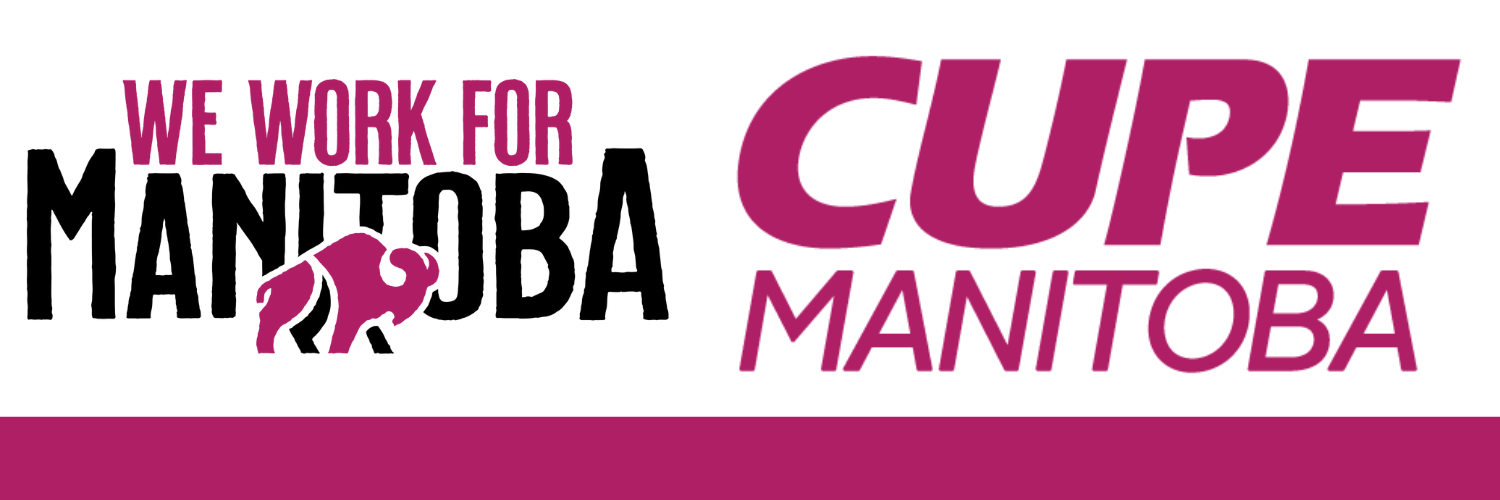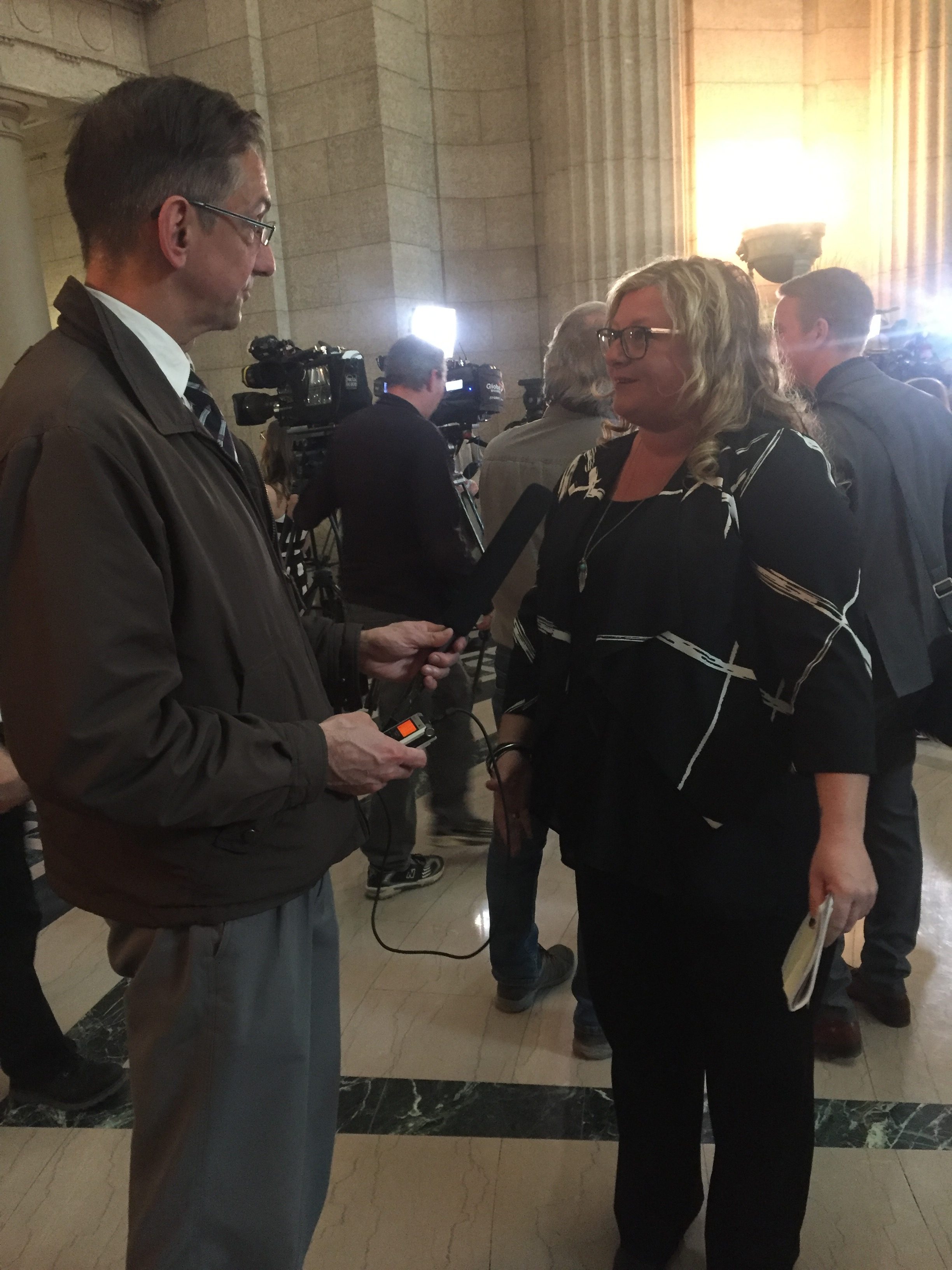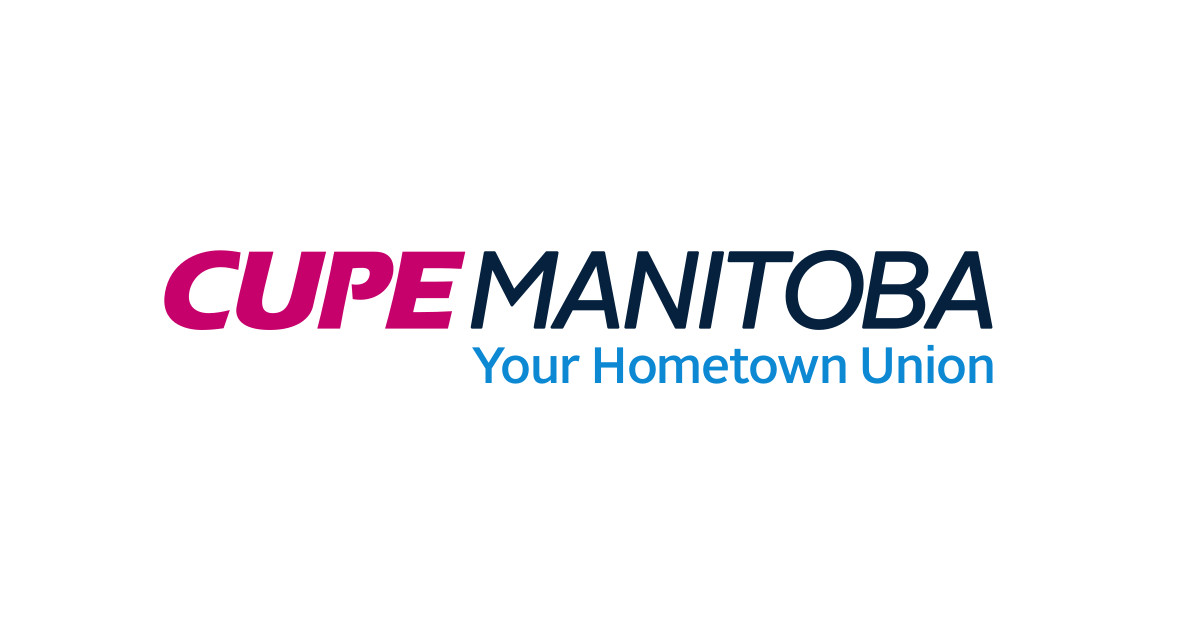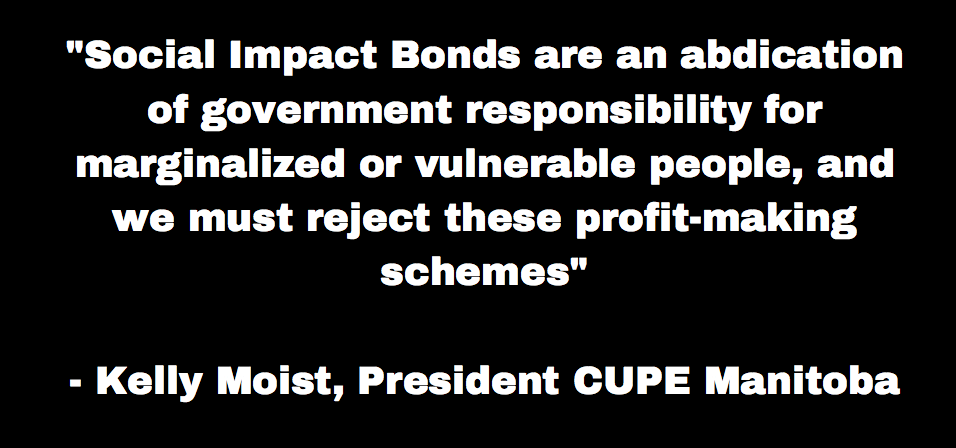Today the Premier of Manitoba officially dropped the writ, beginning a month-long election that will determine the next government of Manitoba on April 19.
But what does this election mean for CUPE members?
The Conservatives and Liberals want to cut jobs, privatize services, and reverse the gains we have made as workers under the NDP.
While election platforms will be rolled out throughout the campaign, we have already seen overtures made by the Conservatives and Liberals that will affect our members.
This is a brief overview of what’s at stake for CUPE members in Manitoba:
- School Sector workers: the Conservatives have promised not to cut teaching jobs, but don’t rule out funding cuts to schools. Funding cuts to schools mean School Boards will look to our support staff members and programs for “savings”.
The Liberals have announced that they too will find millions in “savings”, but haven’t yet said where they will cut. Liberal governments in other provinces have pushed school support staff on strike with layoffs and funding cuts.
- Child Care workers: the Conservatives have openly discussed creating more private child care centres across the province. Private centres mean higher costs for parents, lower quality, and cut corners. The more private centres the Conservatives build, the less support public centres will receive by government, driving down wages for our members.The Liberals recently announced their child care plan, which is contingent on funding from the Federal government, and has very few details.
- Social Services workers: Conservatives have indicated they want to privatize social services by introducing Social Impact Bonds (SIBs). SIBs allow big multinational corporations to “sponsor” a program, and will receive a “return on investment” if the program succeeds. This would certainly affect our members as government funding is cut.
In fact, the last time the Pallister Conservatives were in power in Manitoba, they cut millions of funding to social service agencies, including many where CUPE members work today.In other provinces, Liberal governments have cut social services to the core.
- Health Care workers: When the Conservatives were last in power, Brian Pallister was a Cabinet Minister and he cut health care jobs. Many CUPE members remember the impact of these cuts.The Conservatives today are no different. They have already discussed finding ways to reduce the workforce in order to “save money”.
In Saskatchewan and Alberta conservative governments have privatized laundry services and cut jobs. The Alberta Conservatives even wanted to introduce fees for health care services. Albertans had enough, and voted in an NDP government.
In Ontario and BC, Liberal governments have found “savings” off the backs of workers. In BC, laundry services have been contracted out resulting in job cuts and pay cuts. Liberals in Manitoba would surely follow that lead.
- Municipal workers: Pallister’s Conservatives have a policy on the books to immediately rescind Manitoba’s groundbreaking Public Private Partnership Transparency (P3) legislation. By doing this they will eliminate accountability and transparency for P3s, which take away jobs from public sector workers, and are far more costly than traditional procurement.
Conservatives will also make sure that new infrastructure is owned and operated by private companies (through P3s), rather than municipal governments.
That means there will be less “need” for public sector workers like you, and it will likely result in downsizing and contracting out.Liberal governments have also promoted the use of P3s., especially in Ontario and the east coast.
The Ontario Liberals have been major advocates of P3s despite their Auditor General pointing out that P3s have cost Ontarians $8 billion more than traditional, government managed projects.
Liberal governments in Quebec have interfered in municipal bargaining, resulting in major labour action in municipalities across the province due to cuts, contracting out, and attacks on pensions.
- Crown Corporations: While Pallister’s Conservatives have denied that they would privatize Manitoba Hydro, the last PC government in Manitoba also denied they would privatize MTS, and then turned around and did so. The Pallister Conservatives have been constant critics of Manitoba Hydro and its planned developments.
The Manitoba Liberal Party has already indicated they will privatize Manitoba Liquor stores, which means they are likely eyeing other places to encourage privatization. Manitoba Liquor stores earn over $280 million in annual profits which are used by the provincial government to pay for government services such as health care and education.
The choice for CUPE members is clear:
At the most recent CUPE Manitoba Convention, members from across the province voted to endorse the NDP. If you take a look at the track record of the NDP in Manitoba over the years, it is clear they are prepared to work hard for workers in our province.
- School Sector workers: The NDP in Manitoba has consistently increased funding for schools. Class sizes have been reduced, while supports for staff have increased, including wages.
- Child Care workers: The NDP has tripled public child care funding, and has implemented wage enhancement to increase pay for child care workers. They have also promised to build more public child care centres, and increase spaces by 12,000. Manitoba has the most affordable child care outside Quebec, and the NDP is committed to universal child care for all.
- Social Services workers: Many of the social service agencies in Manitoba today exist because the NDP has prioritized community development, and has reinstated much of the funding that was cut in the 90’s.
The NDP hold the firm belief that investing in social services means investing in the community and protecting those who need it most. From supports for mental health to supporting the Truth and Reconciliation Commission recommendations: the Manitoba NDP support social service programs and jobs.
- Municipal workers: The Manitoba NDP has created the first-ever P3 Accountability Legislation in Canada, recognizing that public workers can do the job better, cheaper, and with more accountability to the taxpayer.
The Manitoba NDP has also consistently funded infrastructure, provided supports to municipalities across the province for things like arena maintenance, community programs, and parks.
- Health Care workers: The Manitoba NDP has consistently made health care a priority, and is building new personal care homes across the province. While other provinces are cutting jobs, cutting pay, and privatizing services, the Manitoba NDP have always invested in health care.
- Crown Corporations: The NDP will continue to invest in Manitoba Hydro, investing in both generation and transmission capacities. The NDP has promised to keep the MLCC public.
April 19 is an important day for CUPE members to get out and vote. But you can do more!
CUPE members are encouraged to volunteer in local NDP campaigns, and help re-elect Manitoba’s worker-friendly government. Talk to workers from other provinces about the challenges they’ve faced under Liberal and Conservative governments.
The stakes have never been higher, and now is the time to take action.
For more information on the provincial election, visit cupe.mb.ca/category/manitoba-provincial-election.
